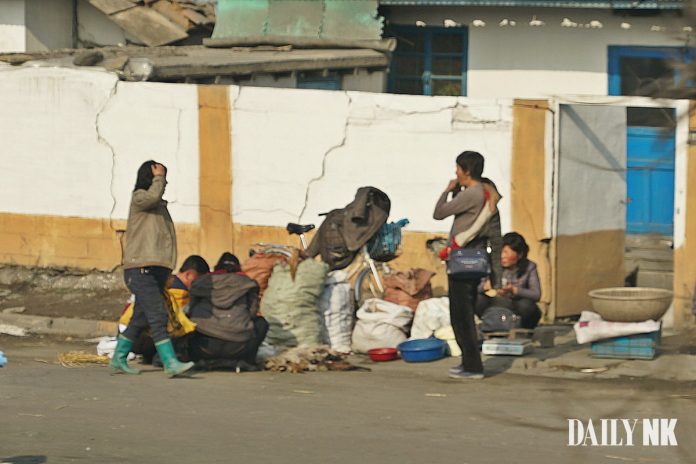
Market rice prices briefly skyrocketed into the KPW 7,000s in some parts of South Hamgyong Province recently, Daily NK has learned.
Speaking on condition of anonymity for security reasons, a Daily NK source in South Hamgyong Province said Tuesday that a kilogram of domestic rice was recently selling for KPW 7,500 and imported rice for KPW 6,800 in some markets in Hamhung and Bukchong County.
Presently, rice has fallen back down to the KPW 6,000s, but even this is high and threatens the livelihoods of local residents, the source said.
“Because it’s the period before fresh rice is harvested, the general trend is for grain prices to rise with little rice being supplied. Imported rice might be cheaper than domestic rice, but this is of little help to people because the price gap is so small.
“People who used to live day-to-day find it hard even to get by just on corn gruel, so with food prices skyrocketing, it’s hard for people to even obtain thin gruel.”
Food prices in North Korea continue to climb, but foreign exchange rates remain more or less unchanged. This situation has caused unhappiness among even the donjuLiterally "masters of money," donju refers to people who hav... More, or wealthy entrepreneurial class, and other well-off individuals who possess foreign currency because they can buy much less rice with the same amount of money as before.
“If you could buy 25 kilograms of rice with RMB 100 before, now you can only buy 17 kilograms with the same money,” the source said. “Naturally, they’re unhappy because they have to pay more for 25 kilograms of rice.”
Hyesan also sees brief spike in rice prices
Meanwhile, rice was recently selling in the KPW 7,000s for a short period in some markets of Hyesan, Yanggang Province, as well.
“Most of the rice sold in Hyesan comes from other places, and prices are rising because wholesalers aren’t bringing in any rice now. Wholesalers know they can face losses if they pay for expensive rice because the rice won’t sell that easily and rice prices will fall later at the end of the harvest.
“Given these circumstances, people are simply waiting for the potato harvest to end later this month or in early October. Rumors are circulating that the government will provide potatoes not only to workers, but also their dependents this year.”
Translated by David Black. Edited by Robert Lauler.
Daily NK works with a network of sources who live inside North Korea, China and elsewhere. Their identities remain anonymous due to security concerns. More information about Daily NK’s reporting partner network and information gathering activities can be found on our FAQ page here.
Please direct any comments or questions about this article to dailynkenglish@uni-media.net.

















